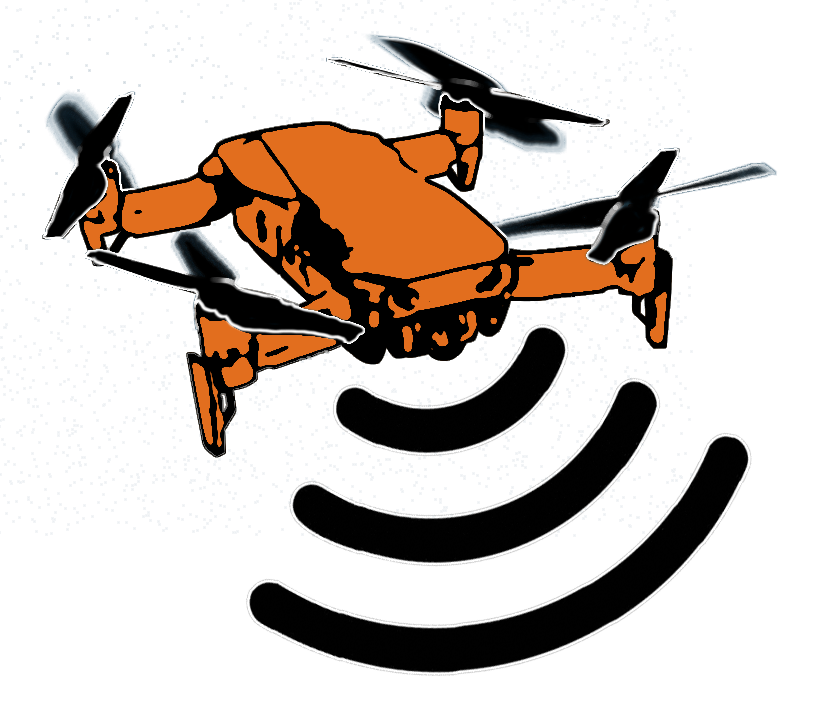Mavlite is an attempt to make a fully elective, asynchronous, and light-weight Mavlink module for MicroPython and CircuitPython.
As of the time of this writing, Mavlink uses roughly 45kb of flash and as little as 30kb of memory. Note: memory consumption is subject to change based on the number of message includes that are in use.
- XIAO rp2040
- ESP32 Standard
- sphinx>=2.4
- sphinx-copybutton
- sphinx-issues>=3.0.1
- sphinx-removed-in
- sphinx-rtd-theme>=1.0
- sphinxext-opengraph
Message Includes
As the Mavlink dialect files are far too large for general microcontrollers to use, Mavlite includes them based on message_ids that are specified in a list object passed during init. Message definitions can be found in the Mavlink documentation (see links section).
from mavlite import MavLink
ml = MavLink(
message_ids=[
132, # DISTANCE_SENSOR
],
)Command Callbacks
Incoming commands are handled in the form of callback executions and are defined in a dict object passed during init. Commands are required to accept exactly seven arguments, the definition of these arguments is specific to the command (see links section).
async def reboot(*args):
"""
This is a simple example of an incoming command callback function.
"""
import microcontroller
microcontroller.reset()
ml = MavLink(
callbacks={
246: reboot
}
)Task Loops
Selective task loops can be called from mavlite.Mavlink.io_buffers. This returns a tuple of asynchronous functions that can be fed directly into tasks:
write loop: Provides outgoing packet transmission bufferread_loop: Provides incoming packet reception bufferheartbeat_loop: Sends a heartbeat packet at 1hz into the write buffercommand_listener: Checks the read buffer for specific commands and executes their respective callback functions
from mavlite import MavLink, UART
_uart = UART(tx=board.TX, rx=board.RX, baudrate=230400)
ml = MavLink(
message_ids=[
132, # DISTANCE_SENSOR
],
)
async def main(read):
"""
Test mainloop.
"""
tasks = await ml.io_buffers(_uart, debug=False)
await asyncio.gather(read, tasks[0], tasks[2])
lidar = LiDAR(debug=True, test=True)
asyncio.run(main(lidar.read()))Sending a command can be achieved using mavlite.MavLink.send_command. This will transmit the command to the write buffer and attempt to return the ACK, providing it's available and has not timed out. Each Mavlink command has seven unique params that must be transmitted, the definitions of these can be found in the documentation provided in the links section.
await m.send_command(
command_id=246,
target_system=0,
target_component=0,
params=[1, 0, 0, 0, 0, 0, 0],
debug=True
)examples/restart.py
"""
This is a simple test method that sends restart commands.
"""
from mavlite import MavLink, UART
try:
import asyncio
except ImportError:
import uasyncio as asyncio
try:
import board
_uart = UART(tx=board.TX, rx=board.RX, baudrate=230400)
except ImportError:
_uart = UART(tx=17, rx=16, baudrate=230400)
m_id = 246
m = MavLink([m_id, 253])
async def send():
"""Send test command"""
await m.heartbeat_wait(True)
await m.send_command(
command_id=246,
target_system=0,
target_component=0,
params=[1, 0, 0, 0, 0, 0, 0],
debug=True
)
async def main(uart_):
"""
Test mainloop.
"""
tasks = await m.io_buffers(uart_, debug=True)
snd_cmd = asyncio.create_task(send())
await asyncio.gather(snd_cmd, *tasks)
asyncio.run(main(_uart))examples/snc.py
"""
This is an attempt to send some dummy sensor readings.
"""
import random
try:
import asyncio
except ImportError:
import uasyncio as asyncio
from mavlite import MavLink, UART
from time import monotonic
try:
import board
_uart = UART(tx=board.TX, rx=board.RX, baudrate=230400)
except ImportError:
_uart = UART(tx=17, rx=16, baudrate=230400)
ml = MavLink(
message_ids=[
132, # DISTANCE_SENSOR
],
)
async def
distance_sensor():
"""
This will send the distance sensor messages to the flight controller.
"""
while True:
try:
await ml.send_message(
message_id=132, # DISTANCE_SENSOR
payload=[
int(monotonic()), # boot_time
1, # min_distance
100, # max_distance
random.randint(1, 100), # current_distance
0, # type
0, # id
25, # orientation # Make sure this matched the value in mission planner...
255, # covariance
20, # horizontal_fov
20, # vertical_fov
0, # quaternion
0, # signal_quality
],
debug=True
)
except KeyboardInterrupt:
break
async def main(uart_):
"""
Test mainloop.
"""
tasks = await ml.io_buffers(uart_, debug=True)
await asyncio.gather(distance_sensor(), *tasks[0:3])
asyncio.run(main(_uart))examples/mplex.py
"""
This is an example of how to use multiple vl53l1x sensors over a tca9548a multiplexor
"""
import random
import time
try:
import asyncio
except ImportError:
import uasyncio as asyncio
from mavlite import MavLink, UART
from time import monotonic
try:
import board
_uart = UART(tx=board.TX, rx=board.RX, baudrate=230400)
except ImportError:
_uart = UART(tx=17, rx=16, baudrate=230400)
TEST = True
i2c = None
tca = None
if not TEST:
import adafruit_tca9548a
import adafruit_vl53l1x
i2c = board.I2C()
tca = tca9548a.TCA9548A(i2c)
ml = MavLink(
message_ids=[
132, # DISTANCE_SENSOR
],
)
SENSORS = {
0: 25, # down
1: 24, # up
2: 2, # right
3: 6, # left
4: 4, # back
5: 0, # front
6: -1,
7: -1
}
def test_scan():
"""
This will fire up the multiplexer and lidar sensors to prove everything is talking the way it should.
"""
total = 0
for channel in range(8):
needs_unlock = True
if tca[channel].try_lock():
print("Channel {}:".format(channel), end="")
addresses = tca[channel].scan()
for address in addresses:
if address == 0x29:
print('found lidar____________________________________________________________________________________')
total += 1
print('unlocking channel')
tca[channel].unlock()
needs_unlock = False
print('grabbing sensor')
sensor_i2c = adafruit_vl53l1x.VL53L1X(tca[channel], 0x29)
print('start measuring')
sensor_i2c.start_ranging()
print('record data')
# while True:
for i in range(1):
print('check sensor ready')
if sensor_i2c.data_ready:
print('get distance')
distance = sensor_i2c.distance
if distance:
print('reading', distance)
print('clearing interrupt')
sensor_i2c.clear_interrupt()
time.sleep(0.1)
if needs_unlock:
print('unlocking channel')
tca[channel].unlock()
print('total modules found:', total)
class LiDAR:
"""
One day this will handle the reading of the LiDAR array.
"""
rangefinders = channel_nums = range(0, 7)
def __init__(self, debug: bool = False, test: bool = False):
"""
Here we will fire up all of our sensors and tell them to start taking samples.
"""
self.test = test
self.debug = debug
if not self.test:
self.channels = [i2c]
for channel in self.channel_nums:
self.channels.append(tca[channel])
self.rangefinders = list()
for channel in self.channels: # Confirm all our sensors are healthy
if SENSORS[channel] >= 0: # Skip disabled channels.
if channel.try_lock():
channel.unlock()
rangefinder = adafruit_vl53l1x.VL53L1X(channel, 0x29)
rangefinder.start_ranging()
self.rangefinders.append(rangefinder)
channel.unlock()
async def mavlink_send(self, chan: int, value: int):
"""
This will send the distance sensor messages to the flight controller.
"""
await ml.send_message(
message_id=132, # DISTANCE_SENSOR
payload=[
int(monotonic()), # boot_time
2, # min_distance
400, # max_distance
value, # current_distance
0, # type
chan, # id # This isn't a requirement, but it's tidy.
SENSORS[chan], # orientation # Make sure this matches the value in mission planner...
255, # covariance
20, # horizontal_fov
20, # vertical_fov
0, # quaternion
0, # signal_quality
],
debug=self.debug
)
# print('sensorID', chan, 'orient', SENSORS[chan], 'value', value)
@staticmethod
async def read_sensor(
channel: [tca9548a.TCA9548A, board.I2C],
rangefinder: adafruit_vl53l1x.VL53L1X
) -> [int, float]:
"""
This will read an individual rangefinder and return the data.
"""
if channel.try_lock():
channel.unlock()
while not rangefinder.data_ready:
await asyncio.sleep(0.01)
result = rangefinder.distance
"""
Here we can add dynamic range mode and FOV changes should we want in the future.
"""
rangefinder.clear_interrupt()
channel.unlock()
return result
async def read(self) -> list:
"""
This will take a reading from the various sensors and passes them into the mavlink_send method.
"""
while True:
for channel, rangefinder in zip(self.channel_nums, self.rangefinders):
if SENSORS[channel] >= 0: # Skip disabled channels.
if self.test:
value = random.randint(1, 100)
else:
value = await self.read_sensor(channel,
rangefinder)
await self.mavlink_send(channel, value)
async def main(read):
"""
Test mainloop.
"""
tasks = await ml.io_buffers(_uart, debug=False) # [write_loop, read_loop, heartbeat_loop, command_listener]
await asyncio.gather(read, tasks[0], tasks[2])
lidar = LiDAR(debug=True, test=True)
asyncio.run(main(lidar.read()))- Full Documentation
- GitHub Repository
- Mavlink Documentation
- ArduPilotMega Documentation
- Mavlink Commands
- Read loop needs serious optimization.
- A request-command/receive method has not yet been implemented.
- Optimize read performance.
- Accelerate code using C-extensions where possible.
- Add custom XML dialog functionality.
- Add request-command/receive functionality.
- At this time this module only supports UART communication, as such packet signing has not been included:
- Serves no function for hard-wired communication.
- Performance would diminish without hardware SHA acceleration.
- Currently only the following dialects have been included in the MSCFormats dictionary:
- minimal
- ardupilotmega
- common
- uAvionix

